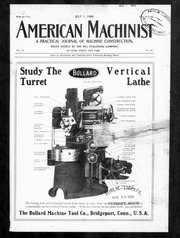This is something I have been thinking about, I work in tool and die and as an employee and engineering enthusiast in general I place a lot of importance on the more I can learn the more I can do, the more I offer my employer. It is a two way street in that the employer sometimes depending on the task needs to allow the employee to learn different tasks.
I’d love to hear employer/managerial feed back on this type of thing.
For me out of personal interest I enjoy learning about machining methods, tooling methods, material science, design, manufacturing, basically everything.
I guess for me while I don’t have a degree I feel as as tool and die worker I want to be on the level knowledge wise as any top mechanical engineer but with the practical experience of a good top tool and die maker/machinist.
I hope I can help guide you. As someone that started in manufacturing while going to engineering school, I can speak on both sides of the fence pretty well. I started work building race engines and components for them. I used to get all the wrench heads asking questions and I got SO tired of pure bullshi* being spouted from these idiots. As I would explain to people, "there are a LOT of idiots out there that have ruined a lot of engines trying to port them without a single clue of understanding of how air moves!" In short, these idiots would have all these knife edges in the intake ports in SUBSONIC airflow regions. Sharper is faster, right??? LMAO.
What I am getting at is you seem to want to know the what/why, and you might learn some things, but a real engineering level core understanding means you can apply the knowledge to any other field of work!
Usually when someone is fixated on the learning, I remind them that unless you learn the basics, you cannot fully understand what is going on. If I start rattling on about "elastic and plastic deformation", you will quickly understand the concept, but you won't actually understand the why and how we select and tune an alloy to give the performance required for an application. To this point, what I tell people is this, every single book I ever used in school can be bought off the street! The only thing college is, is someone charging you an insane price to force you to read those books! No one EVER follows my advice because it is too much work. But I can assure you, reading is not the way to lock things into memory. This is why there is homework, tests, and experiments. You will know you have "the knack" when you read something new in the book, and you go buy a bunch of bolts and start doing failure testing, and proving things to yourself!
If you have good engineers in your biz, they may be quite open to helping you if they know you are in the books!!! Have well thought out questions. Don't just ask them the difference in yield and ultimate strength. learn the units we work in! Numbers are useless without units of measure.
But seems like I will be the first to commend you on an interest in learning! You are the type of guy I look for! I would say many owners don't have that mentality. they just want a job done.
let me give you a short story. I was working in a huge facility and there was an apparent problem in that they laid off the only person educated on the lock systems in the whole place! DUMB! Indication was this guy spent several days in CA on a few trips to learn how to key up locks, build cylinders, etc. Somehow or another everyone knew I was the smartest guy in the room and the question was asked, "do you think you can figure this out?" I told them IDK because I had never done any of it. They basically gave me whatever time and resources I needed as the problem needed solved. All I had was a bunch of numbers, sequences, build sheets, and fixtures to build these things. Within 24hrs I returned to the war room to enlighten that I solved it and I proved it. I was then tasked with all secure lock work for the entire facility and granted top clearance to everything.
I'm not sharing that to stroke my ego, but what happened here is 20 people in that room knew I was a guy that can figure things out. If you take the time to properly educate yourself and learn things outside your field, new opportunities will arise for you! And if you didn't know, many of the "engineers" involved with NASA during the Apollo days did NOT have degrees! They were vetted on their competence. Don't EVER let someone tell you that you can't do it because you don't have the papers. Prove them wrong!!!!


